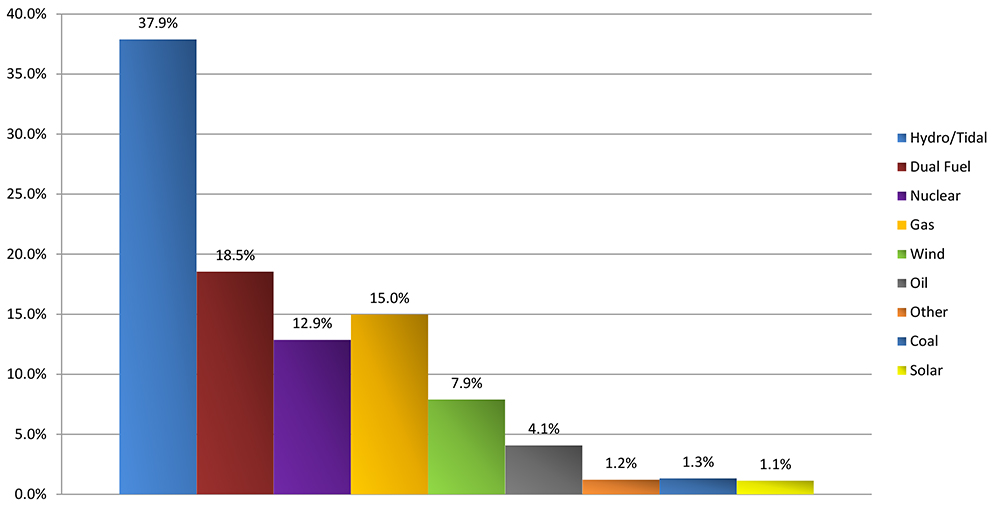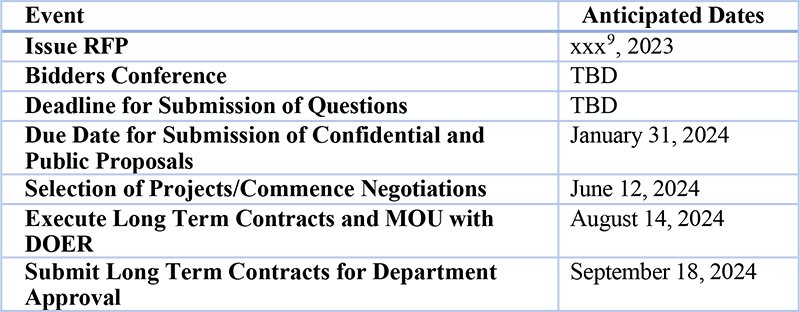WASHINGTON — FERC’s recent efforts to approve certificates for natural gas infrastructure won praise from both sides of the aisle at a Senate oversight hearing Thursday, but the ongoing transformation of the grid generated debate.
The gas industry built the lowest level of infrastructure last year since the Energy Information Administration began tracking the numbers in 1995, said Energy and Natural Resources Committee Chair Joe Manchin (D-W.Va.).
“I’m glad the FERC appears to have heard the concerns last year from everyday Americans and from members of Congress,” he added. “We’re starting to see FERC make decisions at a better pace. FERC approved more than 10 Bcfd of natural gas pipeline capacity and nearly 6 Bcfd of LNG export capacity over the last 12 months; combined, that’s more than triple the capacity FERC approved during the 12 months prior.”
Ranking Member John Barrasso (R-Wyo.) praised interim FERC Chair Willie Phillips for moving more projects under his leadership.
“Chairman Phillips, I commend you for resetting the commission’s agenda,” Barrasso said. “You have brought orders forward for discussion and for action; you have emphasized energy reliability and affordability.”
The praise from the committee contrasted with when Richard Glick was chair and tried to get the commission to consider the global warming impacts of natural gas infrastructure by issuing two policy statements that were ultimately withdrawn after significant criticism. The issue ultimately helped sink his nomination for a second term late last year. (See Glick’s FERC Tenure in Peril as Manchin Balks at Renomination Hearing.)
Both Republican members of the commission said they were worried about a looming reliability crisis as the grid continues to transform with more renewables coming online and fossil-fueled power plants shutting down.
Commissioner James Danly placed the blame for ongoing reliability risks on FERC’s “maladministration” of the markets.
“FERC has distorted price signals and warped incentives in the markets, interfering with price formation and jeopardizing resource adequacy,” Danly said. “Most of these market-distorting forces originate with subsidies — both state and federal — and from public policies that are otherwise designed to promote the deployment of non-dispatchable wind and solar assets or to drive fossil-fuel generators out of business as quickly as possible.”
The subsidies enable renewables to bid at zero, or lower, and that brings down prices, which in turn leads to early retirements for fossil power plants. Danly opposed the elimination of the minimum offer price rules, which he said were their “economic guardrail.”
Commissioner Mark Christie said that the problem was not with the addition of renewables, but the early retirements of dispatchable power plants.
“The United States is heading for a reliability crisis,” Christie said. “I do not use the term ‘crisis’ for melodrama, but because it is an accurate description of what we are facing. I think anyone would regard an increasing threat of systemwide, extensive power outages as a crisis.”
Even though the commissioners might describe the grid’s transition differently, Christie later said that when it comes to the Federal Power Act, partisan differences rarely matter.
“All four [of us are] lawyers, and that means we have 16 different opinions,” Christie said. “But you know, we only need three votes to get something out and the business is getting done.”
When it comes to the FPA and issues around organized markets, any disagreements generally do not fall along the normal partisan faults, so the commission has been able to find three votes and get orders out, he added.
Phillips listed reliability as FERC’s most important job, and he highlighted the progress the commission has made in addressing issues such as cybersecurity and preparation for extreme winter weather. He also focused on FERC’s efforts to reform transmission planning and operating rules.
“My highest priority in the near term is to finalize a proposed rule that will greatly improve our processes for interconnecting new electric generating resources, reducing the time it takes to bring those resources online,” Phillips said. “In addition, we are working to finalize a second proposed rule on how to plan and pay for badly needed regional electric transmission facilities.”
Sen. Martin Heinrich (D-N.M.) asked whether FERC had plans to address rules around interregional transmission along with its pending proposals on interconnection queues and regional transmission planning.
“Absolutely; I’ve talked about interregional transmission since I was on the commission,” said Phillips. “You don’t have to look any further than recent extreme weather events to see how critically important it can be to maintaining the reliability of the grid.”
Heinrich also urged FERC to avoid re-imposing any federal rights of first refusal in its rule changes. The commission proposed a limited ROFR for joint projects where utilities work on a line with an unaffiliated company, but Phillips said he was open to changing that in the final rule.
“Should these rules be finalized, I expect they will reduce customer costs over time and improve reliability outcomes,” Commissioner Allison Clements said. “Meanwhile, my colleagues and I continue to discuss transmission system matters with state utility regulators at the Joint Federal-State Task Force on Transmission, and I expect the finalized transmission rules to reflect lessons learned at those collaborative sessions.”
In the West, the industry is increasingly working together across the entire interconnection as they deal with the transforming resource mix and more frequent extreme weather events.
“I’ve been really pleased to see the development in the West over the last five years. State regulators across the region, as well as state legislatures across the region, have identified how do we protect customers and reliability on a forward-looking basis,” she said. “And so, they have been thinking deliberately and carefully about developing markets.”
Most of the interconnection is in one of the nascent energy balancing markets now, and those are being extended to offer day-ahead services, while the states continue to consider joining an RTO, Clements said.
While FERC is moving ahead on transmission on its own, several senators noted that they are working on efforts to “reform” the permitting process, with Manchin saying projects need to be developed much more quickly. He has reintroduced a bill that failed to pass last session. (See Manchin Permitting Bill Falls Short in Senate.)
Barrasso and Sen. Shelley Moore Capito (R-W.Va.), ranking member of the Environment and Public Works Committee, released another permitting bill Thursday. The House of Representatives has already passed its own permitting bill, but it lacked anything to do with transmission. (See Republicans Opening Offer on Permitting is Missing Electric Tx.)
Manchin said he hoped that the interest in changing permitting on both sides of the aisle would lead to bipartisan legislation, saying that electric transmission was the hardest part of the bill to negotiate, but that it is necessary.
“The House gave us a piece of legislation with no transmission,” Manchin said. “Any bill is not going to happen without transmission; same with pipelines.”

